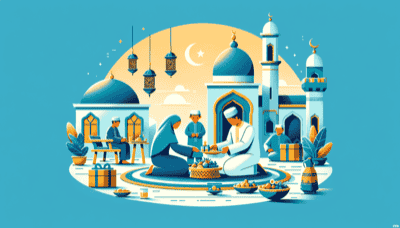We're here to help you keep count of the days to or since a date. Just click the button below and enter your chosen date to get started. Also choose the suggested days or search for a special day above #countingthedays

Eid ul-Fitr, known in Mauritania as "Korité," marks the end of Ramadan, the Islamic holy month of fasting. It is a day of great significance for Muslims in Mauritania, as it is across the Islamic world.
The history of Eid ul-Fitr dates back to 624 CE when it was first instituted by the Prophet Muhammad in Medina after the victory at the Battle of Badr. This holiday celebrates the completion of Ramadan, during which Muslims fast from dawn until sunset, seeking spiritual growth, self-improvement, and increased devotion.
On Eid ul-Fitr, Mauritanians typically begin their day with a special prayer called "Salat al-Eid" performed in large congregations. The prayer is followed by a sermon (khutba) where the imam discusses gratitude and reflection on the month that has passed.
Charitable Giving: Before attending prayers, believers are expected to perform an act of charity known as "Zakat al-Fitr," giving to those in need to ensure everyone can partake in the celebratory aspects of the day.
Family Gatherings: Families dress in new or their best clothes and visit relatives and friends throughout the day. They exchange greetings such as "Eid Mubarak" (Blessed Eid) or "Eid Saïd" (Happy Eid).
Feasting: After a month of fasting, food plays a central role in celebrations. People enjoy traditional Mauritanian dishes such as "méchoui" (roasted lamb), sweet treats like "maarek" or "gâteau sec," and savor cups of mint tea.
Cultural Displays: In some regions, cultural festivities including music and dance may accompany Eid celebrations.
Overall, Eid ul-Fitr in Mauritania is a joyous occasion that fosters community spirit, gratitude to Allah for His blessings during Ramadan, and solidarity among Muslims.